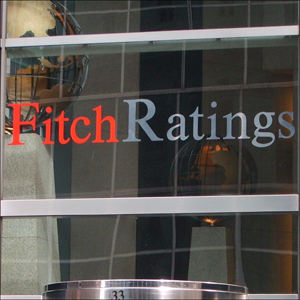Fitch Ratings-London-19 January 2015: Political uncertainty in Greece before and after the election on 25 January will raise liquidity and funding risks for banks, Fitch Ratings says. But potential liquidity strains should be manageable since the banks are better prepared to withstand deposit outflows than when elections were last held in 2012, as long as access to Eurosystem facilities is maintained. Nevertheless, prolonged uncertainty would be negative for the banks’ credit profiles.
There have been outflows of private-sector deposits since mid-December 2014 with signs of a shift to other investments, maturing time deposits kept at sight and cash withdrawals. We estimate deposit outflows of over 2% of total banking system deposits so far and expect further withdrawals, particularly in the weeks around the election date.
We believe the outflows will not be as large as those across the system in May and June 2012 (9.3% of total private sector deposits as of end-April 2012), when two rounds of parliamentary elections took place. In our view, there was greater uncertainty during the previous elections. They took place in the middle of the eurozone crisis when Greece’s exit from the bloc was a greater risk than it is now, the government had just restructured its privately held debt and social unrest was at its peak.
The system’s liquidity is also under pressure from margin calls following the rise of the Swiss franc after the Swiss central bank removed a cap against the euro on 15 January. Greek banks have currency swaps on their Swiss franc-denominated assets (largely mortgages), which totalled EUR12.5bn (or 3.5% of total assets of the four largest banks) at end-2013. These assets are predominantly hedged, limiting any profit and loss impact.
Nevertheless, banks have built up liquidity buffers and have access to central bank funding that should enable them to withstand substantial liquidity stress. Sector consolidation into just four large banks with significantly smaller loan portfolios has reduced funding needs. Liquid assets increased following the capital injection of EUR36bn as part of a two-stage recapitalisation process in 2013 and 2014. These improvements helped to support the banks in issuing EUR2.3bn of senior debt instruments in 2014, further enhancing their liquidity.
We expect most of the four Greek banks have unencumbered ECB-eligible assets to meet any outflows of deposits similar to those seen around the mid-2012 election. On a precautionary basis, banks may have also applied for the emergency liquidity assistance (ELA) facility from the Bank of Greece, in preparation to at least offset the non-eligibility of self-retained government-guaranteed bonds at the ECB from March 2015. We believe Greek banks could tap the ELA to offset a further substantial liquidity stress.
But the banks will face more pressure if political risk remains high. The banks’ access to ECB liquidity facilities is dependent on Greece being under the international bailout programme, and they may be more reliant on this as the repo market for their EFSF bonds becomes more risk adverse. A prolonged election process and deadlock between the new Greek government and the Troika in negotiating an extension of the bailout is not our expectation, but would increase political uncertainties and risks for banks. This could increase structural funding imbalances if deposits take a long time to return to the system. Post the 2012 election, the sector recovered about 70% of May-June 2012 deposit outflows in 2H12.
An extended period of political uncertainty would also be negative for already weak asset quality. Strategic defaulters could take advantage of the situation and stop paying their dues, although this would likely be temporary. Depending on the election outcome, there is a risk that reforms to insolvency laws, which would help banks tackle their large stock of problem loans, could be postponed or terminated.
Fitch placed Greece’s sovereign rating on Negative Outlook (B/Negative) on 16 January. The sovereign rating action does not automatically trigger negative rating actions on the ‘B-‘/Stable ratings of the four Greek banks, which are driven by their stand-alone profiles. But further pressure on the operating environment could eventually affect banks’ ratings too. The four banks together held EUR20.8bn of Greek sovereign debt at end-2013 (a large portion of which in T-bills), which was around 60% of their equity at end-1H14, so they remain sensitive to the sovereign’s credit.



















